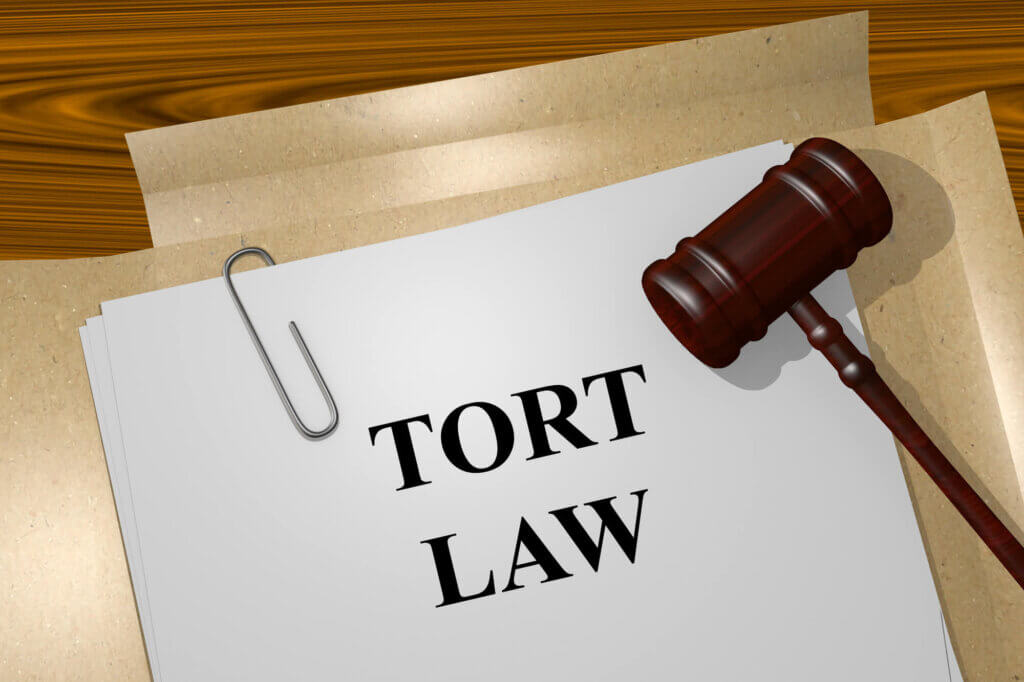In 2021, there were 344,567 civil cases filed in the United States. We’re all familiar with the concept of filing a lawsuit to get justice when we’ve suffered wrongful injuries. But what you may not know is that, in legal terms, this is called tort law.
Tort law covers all forms of civil litigation except contractual disputes. If another party’s actions cause you harm and you’ve suffered compensable damages, your claim falls under tort law.
But what is a tort? What are some examples of tort cases, and what does a civil litigation lawyer do? Let’s explore the answers to these questions and more in our tort law guide.
What Is Tort Law?
“Tort” is not a word we use every day. It means a wrongful act or infringement of a right for which someone is legally liable. It does not include breaches of contract or criminal activity, which are covered by other areas of the law.
Injury in Tort Law
Tort Law allows people who have suffered a wrongful injury because of the actions or negligence of another party to seek damages. The injury is any invasion of a legal right and can be to an individual or to their property. The goal is to make restitution for what the individual lost by means of financial compensation.
Harm in Tort Law
The losses, known in Tort Law as harm, suffered by the individual can be economic and non-economic. Examples of losses for which individuals may seek monetary compensation include:
- Medical bills
- Property loss or damage
- Lost wages and business opportunities
- Pain and suffering, in certain cases
Tort Law covers a wide variety of situations. The key is that individuals or their property have suffered wrongful injuries and have a legal claim for compensation.
Types of Torts
There are several types of torts. However, they broadly fall into three main categories:
- Intentional harm
- Negligence
- Strict liability
Intentional Harm
Intentional harm refers to harm someone caused deliberately. It can also include actions the individual knew were likely to result in harm. Some examples include:
- Assault
- Trespassing
- The intentional affliction of emotional distress
Intentional actions, such as assault, may be subject to both criminal and civil proceedings. In a criminal case, the government brings charges. If found guilty, the defendant may be sent to prison, fined, or given other penalties.
In addition, under civil law, a plaintiff (the person who brings the case) may seek damages from the defendant for the injuries they suffered.
Negligence
Negligence in Tort Law means that another party failed to take reasonable care to avoid causing injury to others. Proving negligence involves meeting four legal standards:
- Duty of care: the negligent party had a duty of care
- Breach: the negligent party breached their duty of care by their actions or inactions
- Proximate cause: the breach of the duty of care was the cause of the injury
- Damages: the individual suffered compensable damages
Proving negligence can be tough, which is why it’s wise to work with an experienced civil litigation attorney.
Strict Liability
Strict liability cases do not require proof of either negligence or intentional harm. Instead, they hinge on the fact that an action took place that caused injury to another person or their property.
A classic example of strict liability is a defective product. The manufacturer didn’t intend to cause injury. However, by bringing the product to market, they are liable if it is defective and causes injury.
This protects consumers who would otherwise be left unable to protect themselves and suffer losses for the injury caused.
Examples of Tort Cases
Intentional tort cases are the easiest to understand. They may often run parallel to a criminal case, such as assault, battery, theft, or arson. For example, if someone assaulted you and caused a traumatic brain injury, you could sue for compensation.
Negligence tort cases are some of the most common, as they include personal injury lawsuits. Some common scenarios include:
- Slip and fall accidents
- Car accidents
- Medical malpractice
- Pedestrian accidents
Strict liability cases are less common and may be pursued as class actions. In a class action, one lawsuit is filed by a group of people who were all affected by the actions of the defendant.
One famous example was when the tobacco company, then called Phillip Morris, was sued by a woman with lung cancer. She successfully claimed that her illness was caused by smoking and that she was given insufficient warnings of the risks by the company. She received $28 million in damages.
What Does a Civil Litigation Lawyer Do?
Civil litigation refers to legal proceedings that do not involve criminal activity. It includes tort cases and more, as it also covers contract and family law. In most cases, the goal of civil litigation is to obtain financial compensation for losses suffered by the plaintiff.
Civil litigation includes:
- Personal injury
- Wrongful death
- Breach of contract
- Divorce
- Real estate litigation
A civil litigation lawyer will work with you to investigate your case and create an effective legal strategy. They will pursue every legal remedy available to try to obtain fair compensation for the harm you have suffered.
Husker Law Knows Tort Law
If you have been injured or suffered property damage because of another person’s actions, Tort Law is there to protect you. Depending on the details of your case, it may allow you to pursue compensation that can help you to move on with your life with confidence.
The legal team at Husker Law wants to hear about your case. Our experienced team is ready to use its extensive knowledge of both federal and Nebraska state law to fight for you.
Schedule a consultation by calling us at (402) 415-2525 or by reaching out online today!






